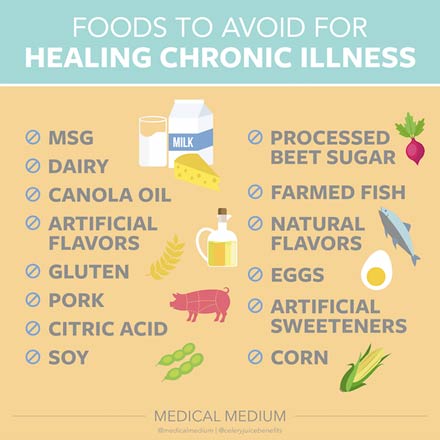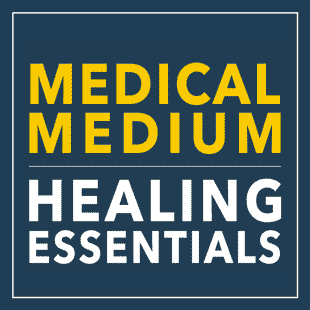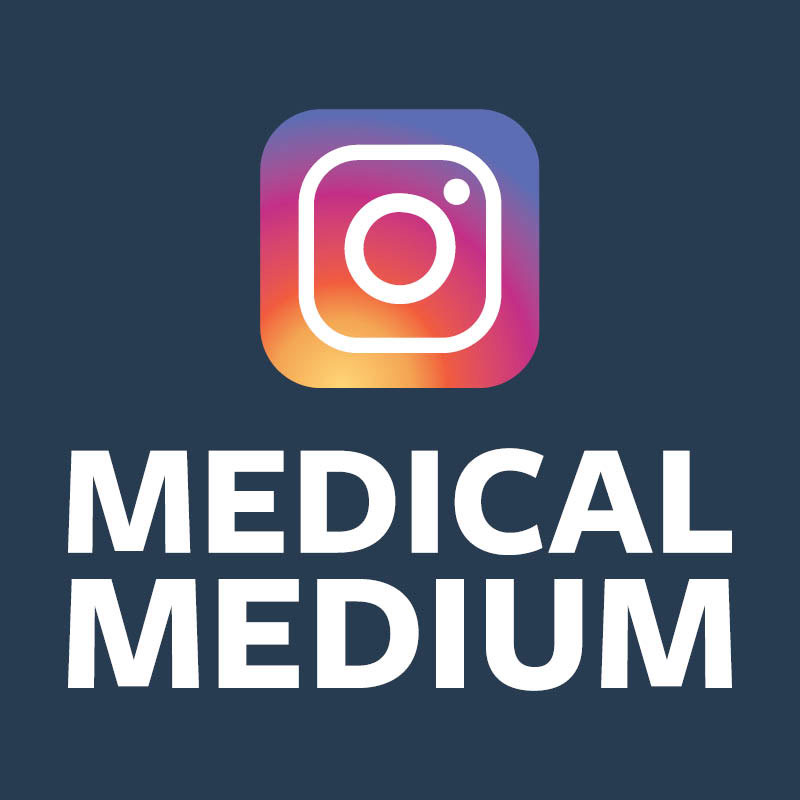Watch: Foods To Avoid For Healing Chronic Illness

Foods To Avoid For Healing Chronic Illness
“If you’re concerned about your health—if you have any sensitivities or conditions, if you’ve struggled with illness, or if you’re just concerned about prevention—then it’s critical to avoid as many triggers and instigators as possible, and this includes certain foods and ingredients. Your body needs every possible level of support so it can heal and then maintain optimal health.
By now, we’ve all heard of preservatives and artificial flavors—we know to avoid those, for very good reason. There are other problematic ingredients, though, which you should know to avoid. These ingredients can feed existing viral, bacterial, and fungal conditions, which can lead to inflammation—and can also wreak havoc with your digestive system, weaken and confuse your immune system, strain your glands and organs, hinder cells anywhere in your body, disrupt or destroy your brain’s neurons and neurotransmitters, make you anxious and/or depressed, set you up for strokes or heart attacks, and more. Health professionals are unlikely to warn you about most of these foods and additives, because it’s not common knowledge that they can substantially worsen already-existing illnesses, nor that they can trigger new health conditions. You deserve to have full knowledge of what you consume, and what effects it all has on your body.
Corn
Corn used to be one of the fundamental sources of nourishment on earth. Unfortunately, the technology of genetically modified organisms (GMO) has destroyed it as a viable food. Corn products and byproducts create substantial inflammation. It’s a food that can feed viruses, bacteria, mold, and fungus. Even if you see corn advertised as being non-GMO, the chances are high that it can still trigger any kind of health condition—and that it may still be GMO.
Try to avoid all corn and all products that have corn as an ingredient. These include foods such as corn chips, taco shells, popcorn, corn cereal, and anything that clearly incorporates corn syrup or corn oil. They also include less obvious products, such as soda, gum, high-fructose corn syrup (HFCS), toothpaste, gluten-free foods that use corn in place of wheat, and herbal tinctures that employ alcohol as a preservative. (It’s most likely corn grain alcohol. Buy the alcohol free versions of tinctures instead.) Try to read ingredient labels carefully and do the best you can. Staying away from corn products and byproducts can be a lot of work. For a treat in the summertime, it’s okay to enjoy a fresh, organic corn on the cob. For the sake of your health, it’s worth the effort of cutting out corn the rest of the time.
Soy
Soy has suffered a similar GMO fate as corn. Soy used to be a healthy food. However, you can now assume that any soy product you encounter could have some GMO contamination or contain added MSG. Be cautious when eating soybeans, edamame, miso, soymilk, soy nuts, soy sauce, textured vegetable protein (TVP), soy protein powder, artificial meat products made from soy, and much more. Try to stay away from soy the best you can. If you really enjoy soy and feel deprived without it, stick to the safest options: plain, organic tofu or tempeh, or the highest-quality nama shoyu.
Canola Oil
Canola oil is mostly GMO at this point in time. And regardless, canola oil creates a great deal of inflammation. It’s especially damaging to your digestive system, potentially scarring the linings of both your small and large intestines, and is a major cause of irritable bowel syndrome. Canola oil can feed viruses, bacteria, fungus, and mold. Beyond that, canola oil has an effect similar to battery acid on the inside of your arteries, creating significant vascular damage.
Canola oil is used in many restaurants and in thousands of products, often as a low-cost alternative to olive oil. Even reputable health food chains and restaurants use canola oil to keep prices down, sometimes advertising canola as a health food. Unfortunately, if canola oil is even a tiny part of an otherwise perfectly healthy dish of organic and all-natural ingredients, you should probably avoid that dish because of how destructive canola oil is. If you’re dealing with a mystery illness or a health condition, try to avoid canola oil at all costs.
Processed Beet Sugar
So far, GMO beets are mostly reserved for making processed beet sugar. You should therefore avoid products that contain processed beet sugar, which feeds cancers, viruses, and bacteria. This is different from grating fresh, organic beets over your salad, or juicing fresh beets. If you stick to organic, most whole beets that you buy in the produce section at your local natural market or at the farmers’ market are safe to consume.
Eggs
Humans have eaten eggs for thousands of years. They were once an amazing survival food for us to eat in areas of the planet where there were no other food options at certain times of year. That changed with the turn of the 20th century, though—when the autoimmune, viral, bacterial, and cancer epidemics began.
The average person eats over 350 eggs a year. That includes whole eggs and also all the foods with hidden egg ingredients. If you’re struggling with any illness, such as Lyme disease, lupus, chronic fatigue syndrome, migraines, or fibromyalgia, avoiding eggs can give your body the support it needs to get better. The biggest issue with eggs is that they’re a prime food for cancer and other cysts, fibroids, tumors, and nodules. Women with polycystic ovary syndrome (PCOS), breast cancer, or other cysts and tumors should avoid eggs altogether. Also, if you’re trying to prevent cancer, fight an existing cancer, or avoid a cancer relapse, steer clear.
Removing eggs from your diet completely will give you a powerful fighting chance to reverse disease and heal. Eggs also cause inflammation and allergies; feed viruses, bacteria, yeast, mold, Candida and other fungus; and trigger edema in the lymphatic system. People who are diagnosed with Candida or mycotoxins are often told that eggs are a good, safe protein that will starve the Candida and mycotoxins. Nothing could be further from the truth. I know how popular eggs are. There’s a growing trend that promotes them as a major health food. Plus they’re delicious and fun to eat. If eggs were good for us in the current day and age, though, I’d be promoting them as such.
Dairy
Milk, cheese, butter, cream, yogurt, and other such products contain a substantial amount of fat, which is a strain for your digestive system—and especially your liver—to process. Dairy contains lactose, and the combination of fat and sugar has negative effects on health, especially if you’re diabetic. Further, dairy fat in your bloodstream helps to breed viruses and bacteria. Dairy is also mucus producing, and a major cause of inflammation and allergies. Those are the issues that have always held true for dairy, even when it’s organic and free-range. And now, conventional, mainstream practice has made a problematic food into a toxic one by creating farm industry pressure to give hormones, antibiotics, GMO corn and soy, and gluten to cows, goats, and sheep. If you want a smooth healing process, it’s best not to eat dairy at all.
Pork
Avoid all forms of pork, including ham, bacon, processed pork products, lard, and so on. It’s difficult to heal any chronic illness while consuming any kind of pig product, due to these foods’ high fat content.
Farmed Fish
Farmed fish are often raised in small, enclosed spaces. This breeds algae, parasites, and other diseases—so the breeders often give the fish antibiotics and treat the water with toxic chemicals. This makes consuming farmed fish risky. The safest fish you can eat are wild ones, such as salmon, halibut, and haddock. No matter what type you select, beware of mercury— especially with larger fish such as swordfish and tuna.
Gluten
Gluten is a protein found in many grains. The forms of gluten to which people are especially sensitive are in wheat, barley, rye, and spelt (a type of wheat). (When it comes to oats, be aware that growing and processing sometimes cross-contaminates them with grains that contain gluten. Oats can be a very good food for people who are less sensitive, though. Look for those that are labeled gluten-free.) Grains that contain gluten also contain multiple allergens and proteins that can trigger any condition. They create disruption and inflammation, especially in your intestinal tract and bowels. They also confuse your immune system—which is your primary defense against disease— and often trigger celiac disease, Crohn’s, and colitis. Eating these grains makes it very difficult for your body to heal. If you’d like to recover from your illness as quickly as possible, minimize grains of any kind.
MSG
Monosodium glutamate (MSG) is a food additive that’s used in tens of thousands of products and restaurant dishes. MSG is a salt that occurs naturally in glutamic acid (a non-essential amino acid). But there’s nothing natural about the extreme damage it can do to you. MSG typically builds up in your brain, going deep into your brain tissue. It can then cause inflammation and swelling, kill thousands of your brain cells, disrupt electrical impulses, weaken neurotransmitters, burn out neurons, make you feel confused and anxious, and even lead to micro-strokes. It also weakens and injures your central nervous system. MSG is especially harmful if you have an illness that involves your brain or central nervous system. However, there are no circumstances under which it’s good for you. As a result, this is an additive you should always avoid. Because MSG is included in countless products, it’s essential to read food labels carefully. It’s also important to know what to look for. MSG is often “hidden” on labels because of its deservedly bad reputation. The following terms usually mean that MSG is an ingredient: glutamate, hydrolyzed, autolyzed, protease, carrageenan, maltodextrin, sodium caseinate, balsamic vinegar, barley malt, malt extract, yeast extract, brewer’s yeast, corn starch, wheat starch, modified food starch, gelatin, textured protein, whey protein, soy protein, soy sauce, broth, bouillon, stock, and seasoning.
Natural Flavors
Any ingredient with a name like natural flavoring is hidden MSG. Natural cherry flavor, natural orange flavor, natural lemon flavor, natural fruit flavor...they’re not just fruit extracts, and they’re not your friends. The same goes for smoke flavor, turkey flavor, beef flavor, natural peppermint flavor, natural maple flavor, natural chocolate flavor, Medical natural vanilla flavor, and all their “natural” and “flavor”-ful cousins. (Although pure vanilla extract is safe to use.) Each type of natural flavor potentially contains multiple biohazards and chemical compounds. Natural flavoring has slipped under the radar and been allowed into thousands of health food store products that are advertised as good, safe, and healthy for you and your children. Moms, take heed. Natural flavors are one of the newest and stealthiest now-you-see-it-now-you-don’t tricks for hiding MSG. Take care reading labels so you and your family can avoid this hidden ingredient.
Artificial Flavors
Artificial flavors can represent any of thousands of chemicals that were birthed in a lab. Don’t take risks by consuming them. As much as possible, the best you can, stay away from chemical additives.
Artificial Sweeteners
Most artificial sweeteners act as neurotoxins because they contain aspartame. This can disrupt your neurons and your central nervous system. Long-term, artificial sweeteners can cause neurological breakdowns and strokes in your brain. If you crave sweets, eat as much fruit as you like. Fruit fights disease and has powerful healing properties.
Citric Acid
Compared to the other additives in this chapter, citric acid isn’t so bad. That said, it’s very irritating to the linings of the stomach and the intestinal tract, so it can create a lot of inflammation and discomfort if you’re sensitive to it. Citric acid (the additive) is not the same thing as naturally occurring acid in citrus. Try not to confuse the two. Citrus itself is a healing food. The isolated ingredient citric acid, however, is often corn derived. Especially if you’re experiencing any kind of stomach pain, keep an eye out for citric acid on ingredient labels and consider skipping foods that include it.”
Excerpt from Medical Medium: Secrets Behind Chronic and Mystery Illness and How to Finally Heal. For more information on foods to avoid and other troublemakers for your health, plus the healing foods to focus on, check out Medical Medium Liver Rescue: Answers to Eczema, Psoriasis, Diabetes, Strep, Acne, Gout, Bloating, Gallstones, Adrenal Stress, Fatigue, Fatty Liver, Weight Issues, SIBO & Autoimmune Disease.
This item posted: 21-Aug-2019
The information provided on this Site is for general informational purposes only, to include blog postings and any linked material. The information is not intended to be a substitute for professional health or medical advice or treatment, nor should it be relied upon for the diagnosis, prevention, or treatment of any health consideration. Consult with a licensed health care practitioner before altering or discontinuing any medications, treatment or care, or starting any diet, exercise or supplementation program. Neither Anthony William nor Anthony William, Inc. (AWI) is a licensed medical doctor or other formally licensed health care practitioner or provider. The content of this blog and any linked material does not necessarily reflect the opinions of Anthony William, AWI or the principal author, and is not guaranteed to be correct, complete, or up to date.
Thanks for printing this post. For more, visit www.medicalmedium.com


